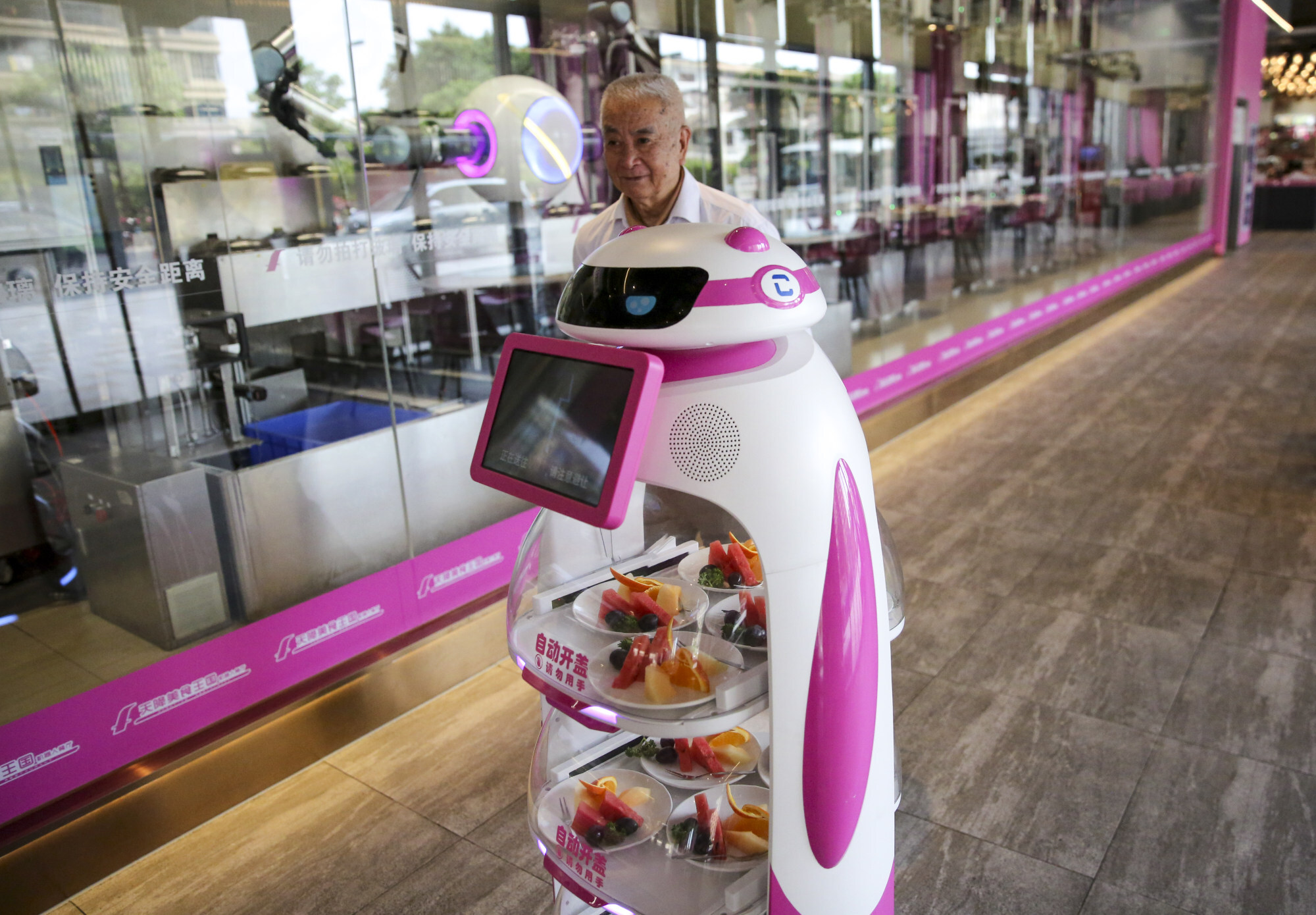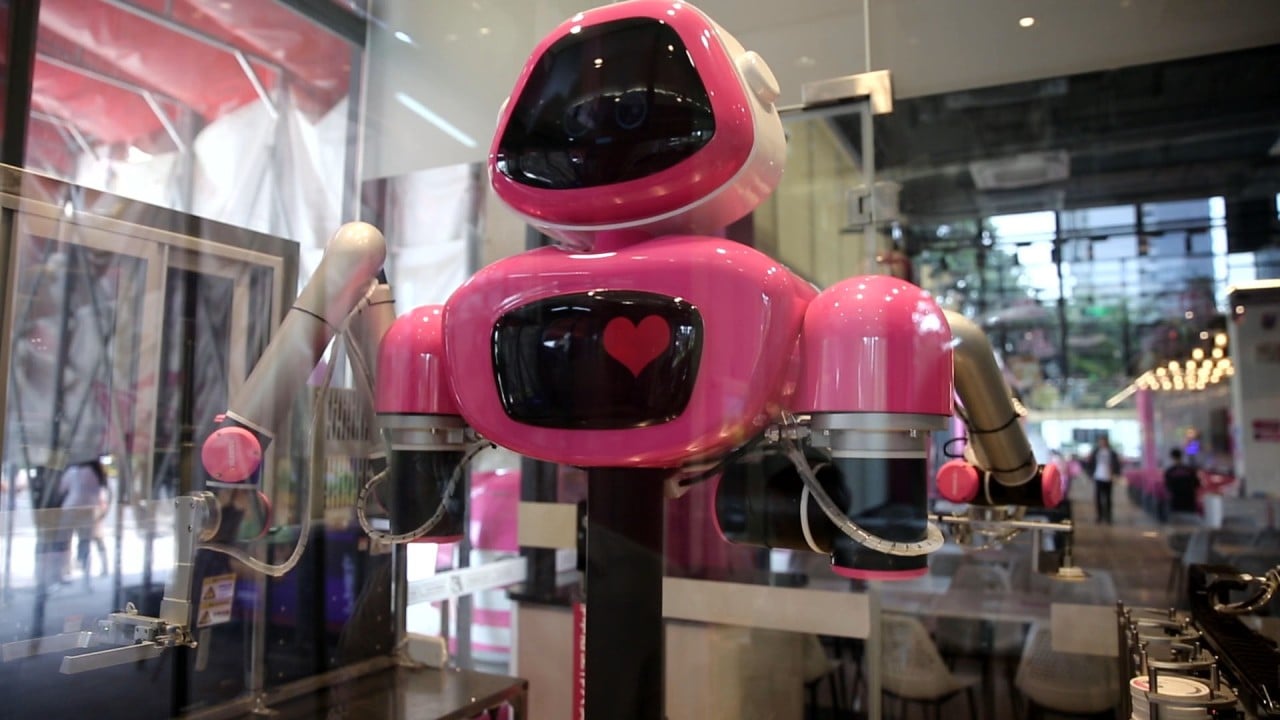
Mainland developer Country Garden bets on robots as it looks to become world’s largest intelligent catering group
- Country Garden wants to turn Qianxi Robotics Group into the world’s largest intelligent catering group and aims to take it public when the timing is right
- Qianxi plans to increase the output of service robots to meet the rising demand in China where sales are expected to reach US$3.86 billion this year
As part of this strategy, the company is betting on its catering robot business – Qianxi Robotics Group – with the aim of turning it into the world’s largest intelligent catering group. And it aims to take it public when the timing is right.
“We certainly will go public … which can benefit us in financing and gaining more recognition from the market,” Xiao Ran, deputy general manager of Qianxi Robotics Group, a wholly-owned subsidiary of Country Garden, said in an interview.

He said that the company, which is yet to post a profit, has not decided on a firm date for the listing, but the shares would either be listed on the mainland or Hong Kong.
However, Country Garden’s non-property development related businesses – construction, hotels, robots, agriculture and new retail – contributed to 2.9 per cent of its total revenue last year.
The use of robots in the nation’s 4.3 trillion yuan (US$655.35 billion) catering industry is gathering pace amid mounting labour pressure and the coronavirus pandemic, which has made consumers conscious of health and safety who are keen to reduce human contact.
“Our vision is to create the largest intelligent catering group, and become the largest supplier of smart catering equipment in the world,” said Xiao, at Country Garden’s global headquarters in Foshan, the fourth largest economy in the bay area.
Qianxi plans to add five production lines this year to the nine it had last year, which would increase its annual production capacity to some 60,000 robots, generating sales of 3 billion yuan. In 2020, it made some 1,800 robots.
China’s service robot segment is expected to account for 30 per cent of the global market, with a market size of US$3.86 billion this year, according to the Chinese Institute of Electronics.
And as this segment grows, Qianxi faces competition from established players such as Shenzhen-listed Siasun Robot & Automation, and Suzhou Pangolin Robot, which is listed on the National Equities Exchange and Quotations. Their products have wide-ranging uses, including delivering food in restaurants, greeting guests and measuring their temperature.
Country Garden has been developing robots since 2018, and it first put them into use in property construction to cut rising labour costs and reduce its reliance on an ageing workforce. At the end of 2020, robots were in use in 15 projects with a construction area of 800,000 square metres.
“Since Country Garden’s robot business is still in the early stage, it demands much investment,” said Meng Ting, senior Asia credit strategist at ANZ. Amid tight regulations on the property market, it is important that the company develops a new line of business, she added.
She noted the developer still has an edge in service robots. “It’s still a new area, and we haven’t seen a leader in this field, not to mention that the market in the future will be relatively large.”



